Bich Dong Pagoda: A Beautiful Landmark in Ninh Binh
The Bich Dong Pagoda, which is also known as the “Second Most Beautiful Cave in Vietnam,” is a stunning spiritual getaway surrounded by gorgeous trees and calm water. Come visit this unusual location and learn about its intriguing past and amazing architecture with MOTOGO Tours!
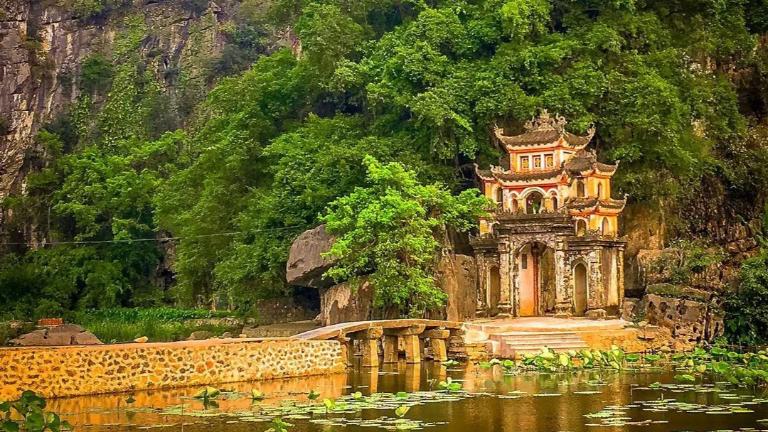
Introduction to Bich Dong Pagoda
Bich Dong Pagoda – Ninh Binh temples & pagodas, a historical and spiritual monument noted for its magnificent design and serene surroundings, is tucked away in Ninh Binh’s verdant scenery. Standing as a masterpiece combining human creativity with natural beauty, it has millennia of history and cultural value.
The Location
Located in Ninh Hai Commune, Hoa Lu District, Ninh Binh Province, Bich Dong Pagoda, sometimes called the “Second Best Cave under the Southern Sky,” Nestled among the magnificent Tam Coc-Bich Dong terrain, this historic pagoda complex is surrounded by tall limestone mountains, rich greenery, and calm waterways. The site produces an exotic, calm environment perfect for spiritual inquiry and meditation.
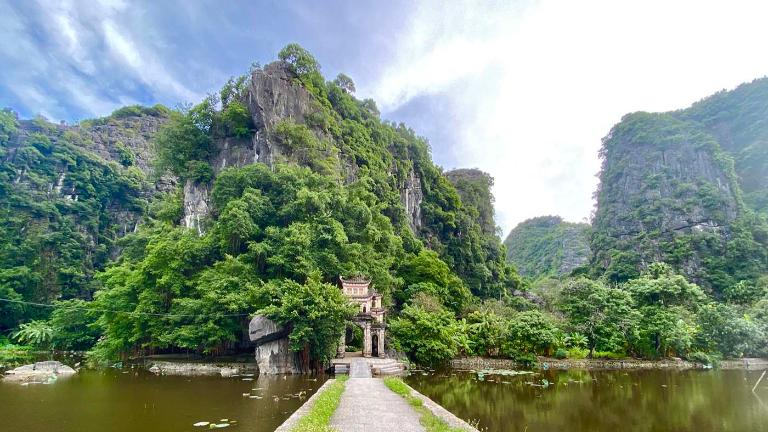
Historical Background
Bich Dong Pagoda began as a modest shrine on top of the mountain around 1428. First called “Bach Ngoc Thach Son Dong,” meaning “a jade-like stone pagoda in the secluded mountains,” it stood for peace and purity. Two Buddhist monks called Tri Kien and Tri The met and grew to be spiritual brothers in 1705. Their objective was of building temples to encourage spiritual development and disseminating Buddhist ideas.
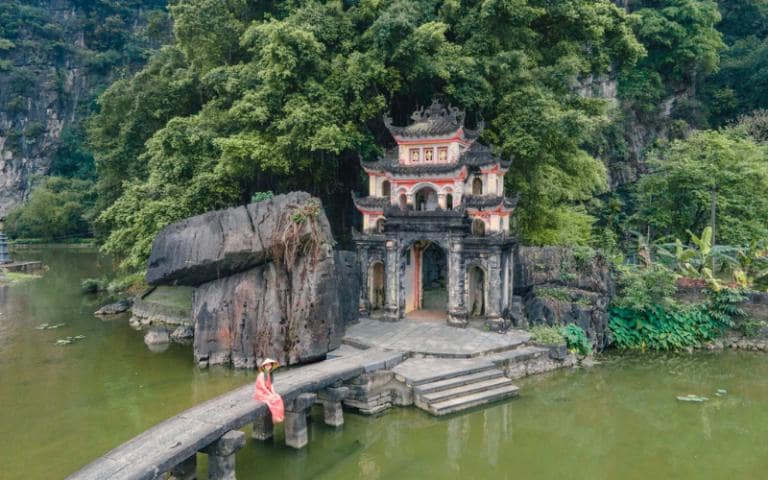
When the monks arrived in Bich Dong, they were enthralled with the unusual topography of the cave and the current little temple. After deciding to remodel and enlarge the building, they produced the three linked pagodas: Ha ( Lower Pagoda), Trung ( Middle Pagoda), and Thuong ( Upper Pagoda).
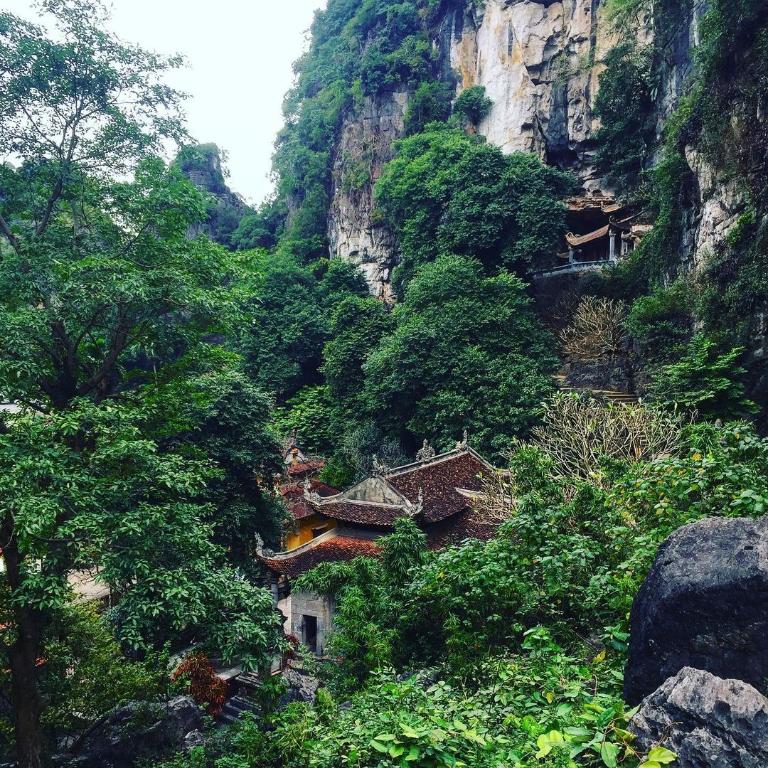
Designed deliberately to fit the natural topography of the mountain, these pagodas symbolize the spiritual trip from earth to heaven. The big bronze bell the monks cast in 1707 is still kept in the Dark Cave (Dong Toi) as a sign of dedication.
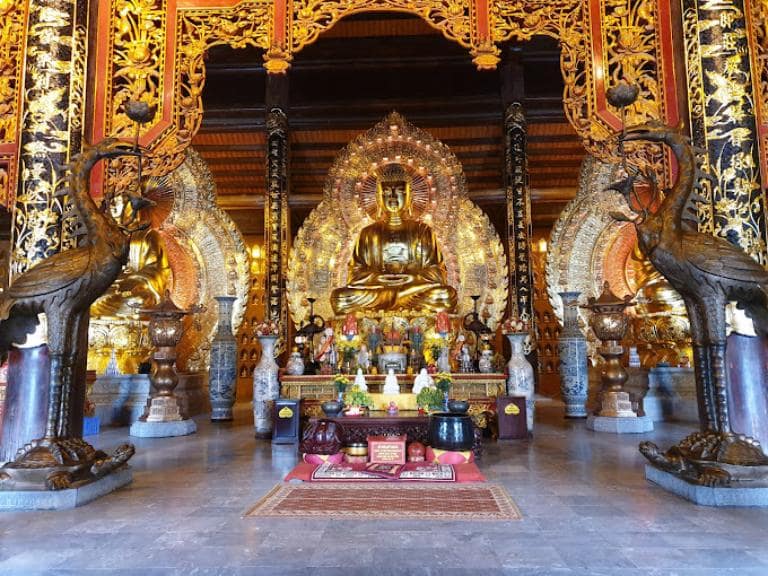
Visiting the site in 1774, Lord Trinh Sam called it “Bich Dong,” meaning “Green Cave,” after being enthralled by its lush surrounds. This name accentuates the year-round rich, verdant landscape around the pagoda.
Cultural Significance of the Pagoda
Bich Dong Pagoda is a great cultural relic firmly ingrained in the identity of the nearby people, not only a spiritual place. The pagoda is evidence of the harmonic coexistence between human work and the surroundings. An vital component of Vietnam’s cultural legacy, its architectural inventiveness and historical relevance define it.
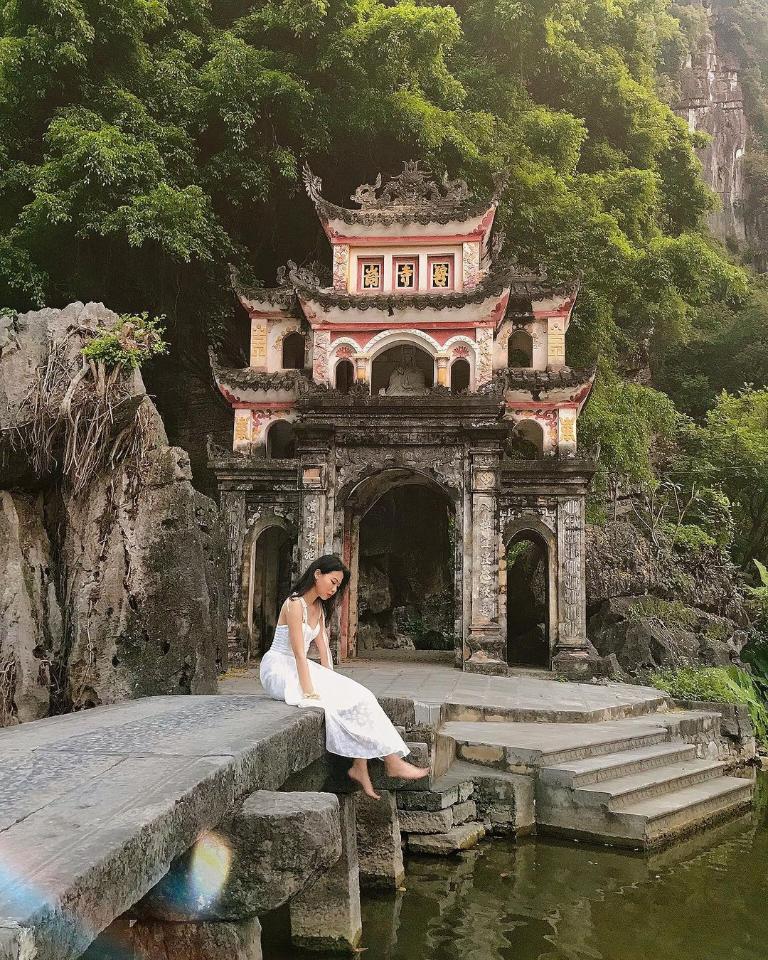
In Ninh Hai residents’ cultural life, the pagoda is essential since it represents their pride in their country and spiritual customs. Representing the principles of old Vietnamese architecture, Buddhism, and rural community life, it is the focal point of the Hoa Lu legacy region. Every pagoda complex building symbolizes Buddhist doctrine and spiritual development.
Architectural Marvels of Bich Dong Pagoda
The Bich Dong Pagoda, which was built in the early Le Dynasty, is a beautiful example of how talented Vietnamese architects are. Still housed in the pagoda are holy stupas honoring the relics of monks who were instrumental in its history and a great bronze bell made during the time of King Le Thai To (1428–1433). The pagoda was brilliantly enlarged into a three-part construction—Ha, Trung, and Thuong Pagodas—seamlessly incorporated into the slope, creating the famous “Tam Toa” arrangement during the Canh Hung Dynasty (1740–1786).
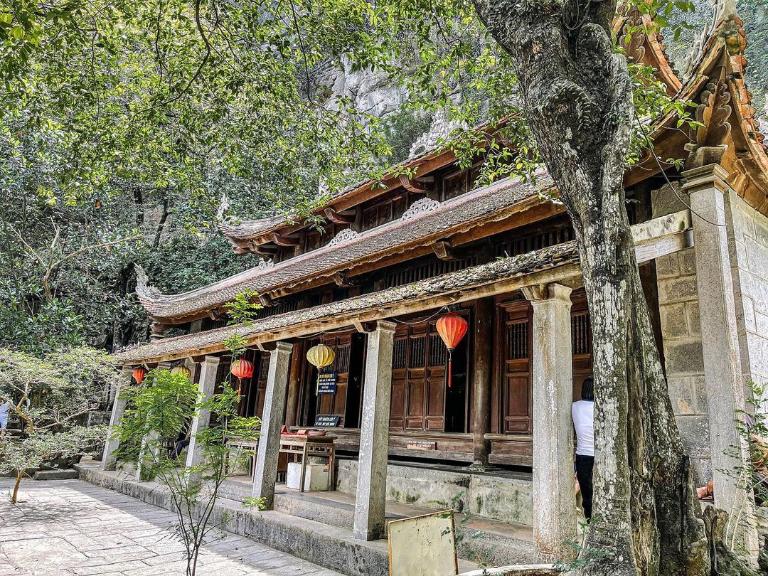
At the base, Ha Pagoda is the ideal fusion of workmanship and environment. Rising on a raised stone base, its five roomy chambers highlight the accuracy of old Vietnamese artists. Constructed from robust lim wood, its roof has two stories and eight gracefully curved sections covered with classic tiles. Designed without any joints and reaching above four meters high, the monolithic stone columns
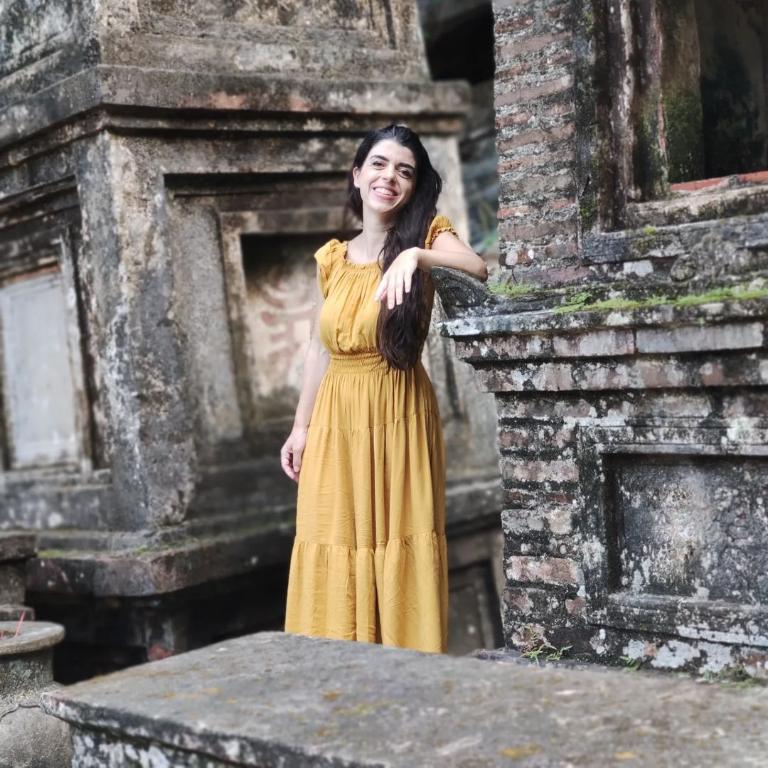
Rising 120 twisting steps leads to Trung Pagoda against the mountain itself. Here on the rock, the name “Bich Dong” is etched amid inscriptions by historical personalities such Lord Trinh Sam and Nguyen Nghiem, the father of eminent poet Nguyen Du.
Declaring the temple a holy base for Buddhism in Vietnam, its rooftop features a magnificent gold character inscription. Inside, the softly carved figures of Shakyamuni Buddha, the Bodhisattvas, and Ananda radiate a calm spiritual vitality.
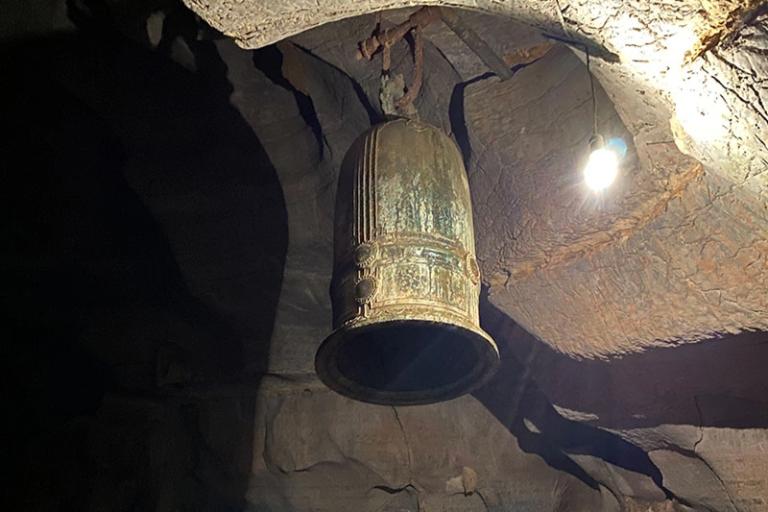
Rising on top of the mountain, Thuong Pagoda (Upper Pagoda) is a wonder of natural integration. Reached by another forty stairs, it provides amazing panoramic views of Ninh Binh’s peaceable environment. Surrounded by the Ngu Nhac Son (Five Music Mountains), whose tops resemble lotus petals drifting far away, this pagoda honors Avalokitesvara Bodhisattva.
>>> Explore the Tranquil Beauty of Kenh Ga Floating Village
Must-visit attractions in Bich Dong Pagoda
Offering a trip through its three amazing temples, Ha, Trung, and Thuong, Bich Dong Pagoda enthralls visitors with its harmonic mix of architecture and nature. From historic carvings and statues to panoramic vistas of Ninh Binh’s calm terrain, every place offers special highlights.
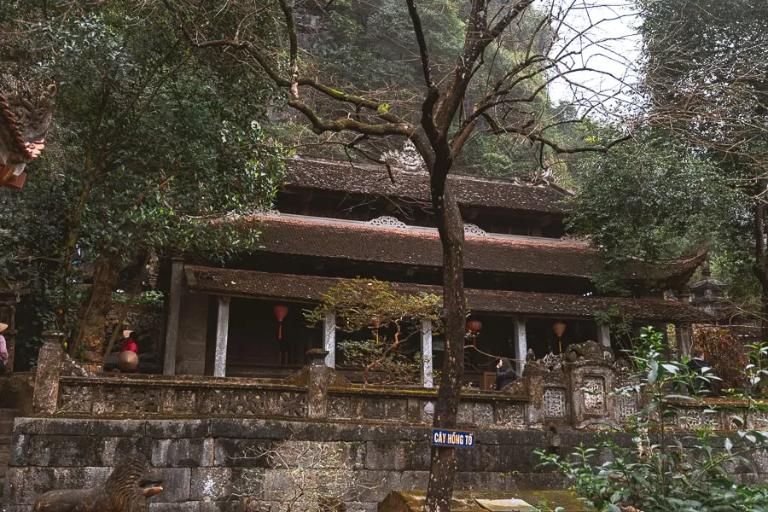
1. Tam Quan Gate – The Entrance to a Sacred World
Constructed more than 300 years ago, Tam Quan Gate is a classic example of Vietnamese traditional building. The boundary separating the mortal world from the spiritual haven of Bich Dong is this great gate. Beside lush trees and undulating hills, it offers a calm environment for guests to begin their trip. The complex carvings on the gate capture the artistic ability of ancient, expert craftmen.
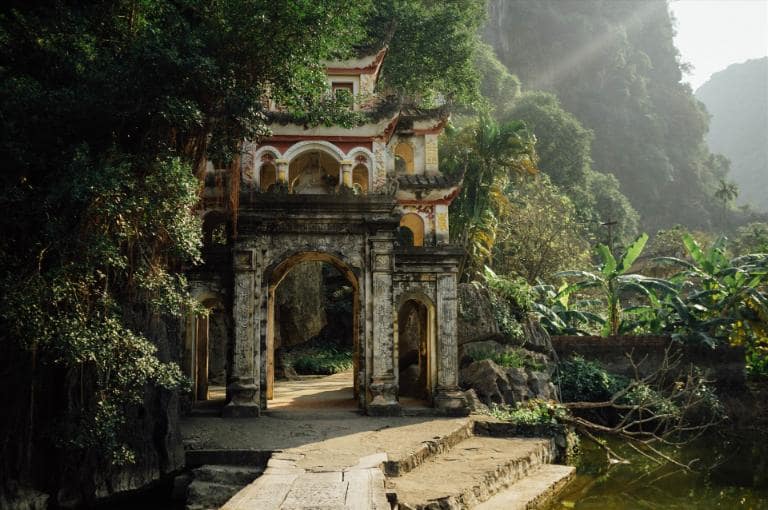
2. Ha Pagoda – Serenity at the Foot of the Mountain
The peaceful mood at Ha Pagoda comes from its location at the base of Ngoa Long Mountain. Designed in the fifteenth century, the pagoda is the first place people starting a spiritual trip halt. The core of Vietnamese Buddhist architecture is embodied in the basic yet sophisticated timber construction. Often coming here to pray for health and happiness among the serene surroundings are devotees.
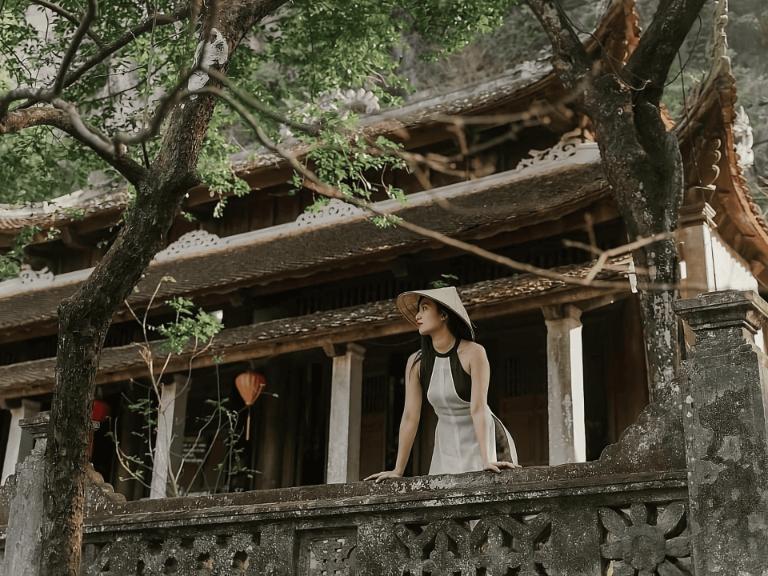
3. Dark Cave – The Mysterious Beauty of Nature
Rising 350 meters, Dark Cave is a naturally occurring cave covered in quiet and mystery. Unique stalactites that have taken thousands of years to develop embellish its inside, like brilliant natural sculptures and mythological animals. The chilly, dark subterranean surroundings inspire exploration and awe. Many times, guests bring flashlights to explore its depths and find its understated beauty.
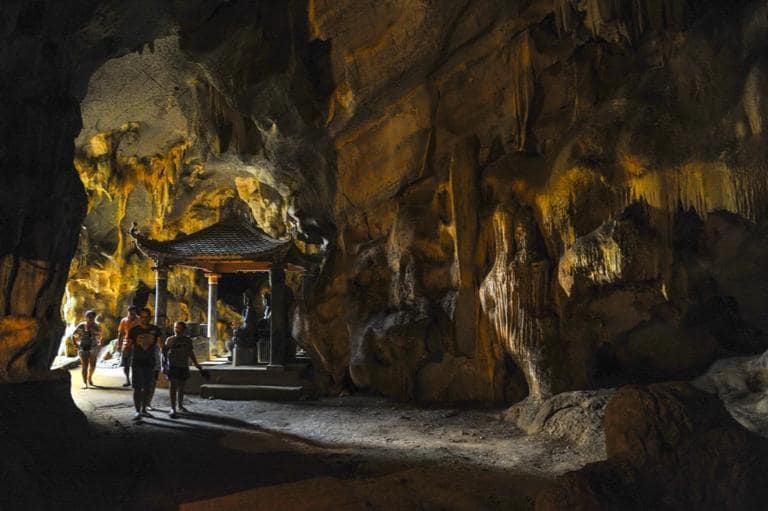
4. Trung Pagoda – A Journey Through the Forested Hill
Trung Pagoda is situated 120 stone steps above Ha Pagoda, offering breathtaking views of lush forests and limestone cliffs. It is a serene midpoint on the way to the peak, attracting pilgrims who seek a quiet place to reflect and meditate. Inside, the temple houses an exquisite stone Buddha statue, a masterpiece that highlights the skill of Vietnamese artisans. Visitors often pause here to soak in the spiritual ambiance and admire the surrounding nature.
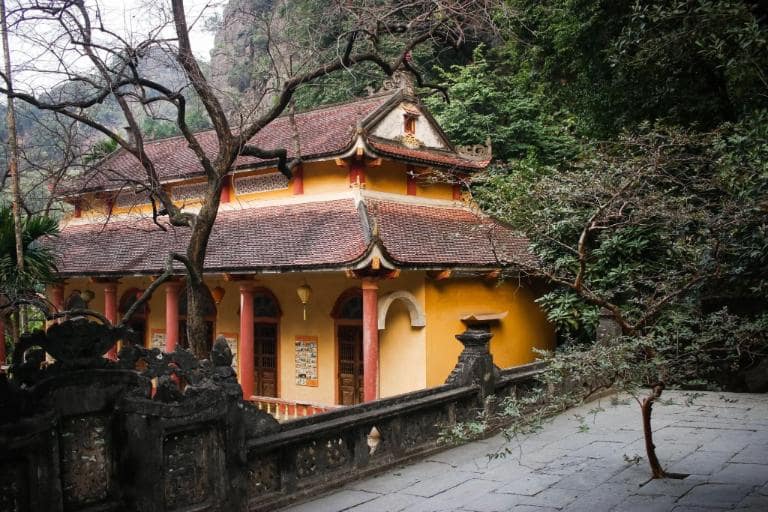
5. Bright Cave – A Natural Heaven of Light
Bright Cave is a beautiful natural cave that is lit up by sunlight that flows through its openings. The 80-meter-long cave stands exquisitely against the darker, more enigmatic Dark Cave just adjacent. Inside, the dazzling stalactites create a wonderful and ethereal mood akin to that of diamonds. Often likened as a shining refuge, this natural wonder draws both spiritual seekers and environmentalists.
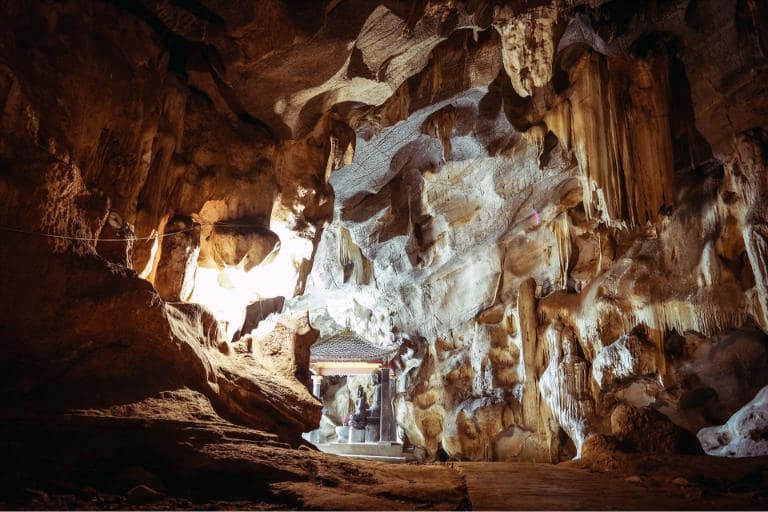
6. Fairy Pond – A Tranquil Escape
Nestled at the base of the mountain, Fairy Pond is a tranquil haven surrounded by rich vegetation and limestone karsts. This is the perfect place for leisure since the glistening clean water mirrors the sky and the surroundings. Local stories hold that fairies descended from heaven to wash in this calm pond. Its unspoiled beauty and the legendary appeal it radiates enthrall visitors.
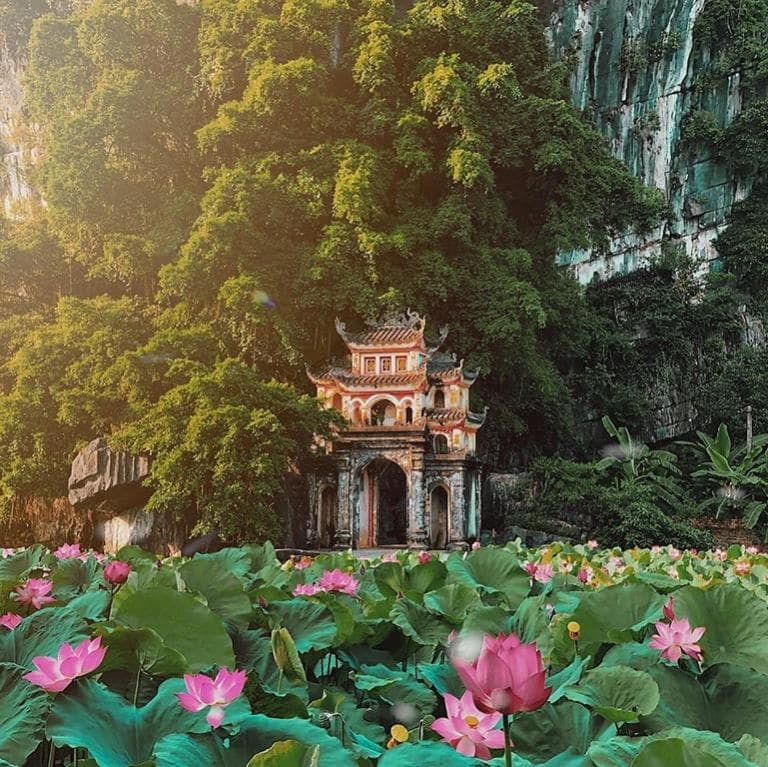
7. Ancient Stone Bridges – A Touch of Timeless Elegance
The Bich Dong complex is linked by its ancient stone bridges, which gracefully span various areas of the complex. These beautiful curves and intricate designs on these bridges, fashioned from local stone more than 200 years ago, They are historical monuments and useful paths that carry guests back in time. Crossing them adds to the appeal of the trip since it feels as if one is entering a beautiful landscape picture.
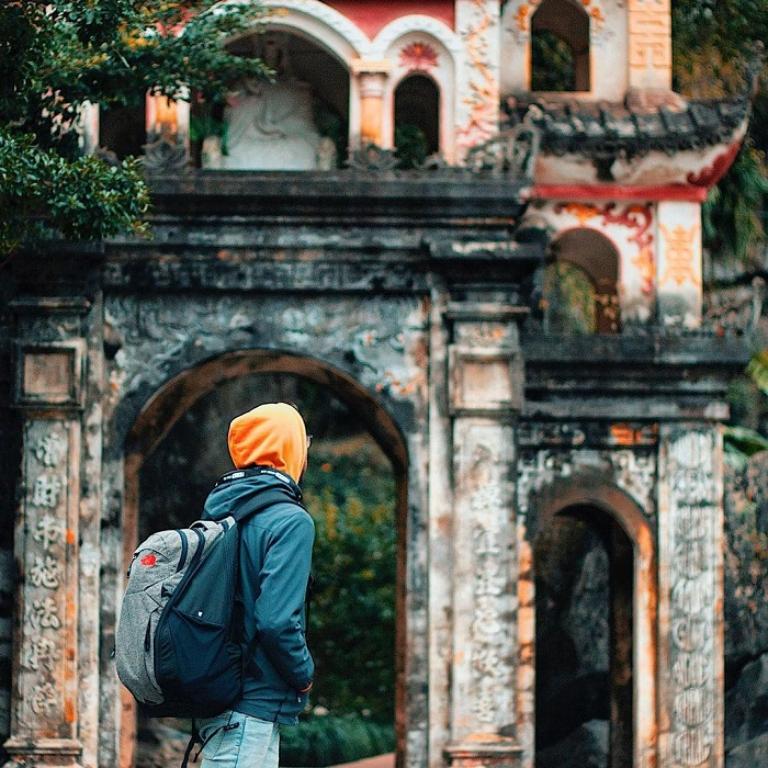
Planning Your Visit
Spring or autumn would be the ideal time to visit Bich Dong Pagoda since the temperature is cool and the surrounding landscape is most vivid. Spend at least half a day thoroughly seeing the three pagodas and savoring the amazing vistas of Ninh Binh’s scenery.
Best Time to Visit
When visiting Bich Dong Pagoda, it is recommended to do it during the dry season, which begins in late January and continues until early May. The moderate and pleasant temperature of the weather during this period makes outdoor activities perfect. Visiting during Tet, the Vietnamese Lunar New Year, is especially memorable since the joyful mood and cultural events give the travel a distinct appeal.
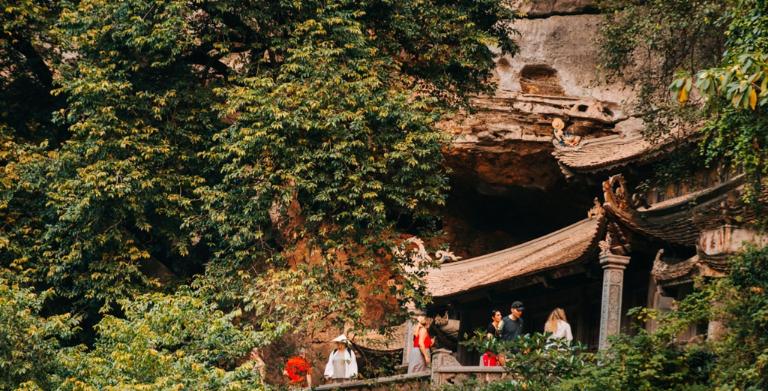
September through early November is another lovely time to visit as the nearby rice fields in Tam Coc turn golden and create a gorgeous scene. The rainy season, from June to August, should be avoided by travellers since slick roads can make climbing and walking difficult.
How to Get There
About one hundred kilometers south of Hanoi, in Ninh Binh province, sits Bich Dong Pagoda. Most people choose to travel by motorbike or vehicle since it provides a lovely 2 to 3-hour trip across Vietnam’s gorgeous countryside. Renting a private car is perfect for individuals wishing to see the area at their own speed since it gives freedom.
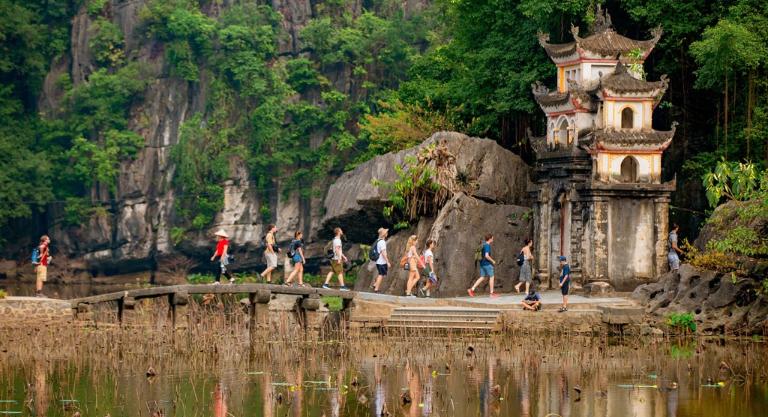
Trains run routinely from Hanoi to Ninh Binh station for public transit, and from there guests can ride a taxi or motorbike for the final 12 kilometers. Alternatively, daily tourist buses run between Hanoi and Tam Coc, offering a handy way to see Bich Dong Pagoda together with surrounding sites. The closest major airport for foreign guests is Noi Bai International Airport in Hanoi; private transports to Ninh Binh are provided.
Tips for a Memorable Experience
Early in the morning, make your trip to escape throngs and savor the serenity of the pagoda. Beautiful pictures of the surrounding terrain and temple building would be ideal for photographing with the delicate morning light.
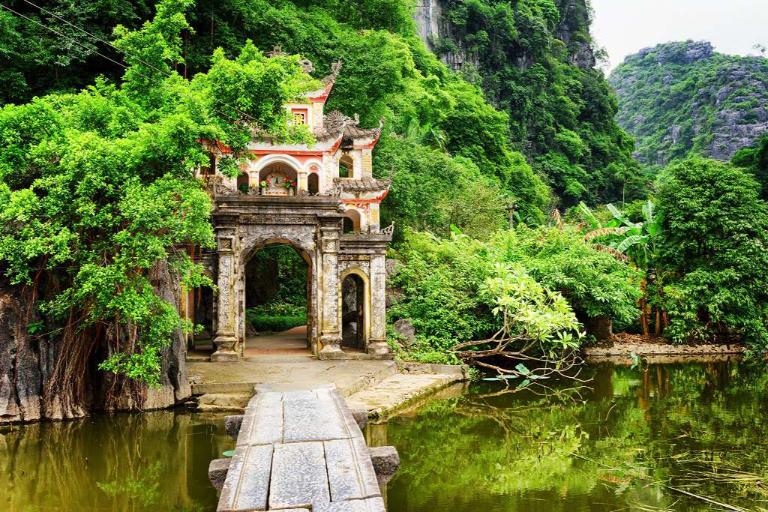
To honor the holy character of the location, dress modestly and wear sensible shoes. Especially for the warm and humid months, basics such water, sunscreen, and bug repellent are advised. If you intend to explore Dark Cave, a flashlight comes in really handy.
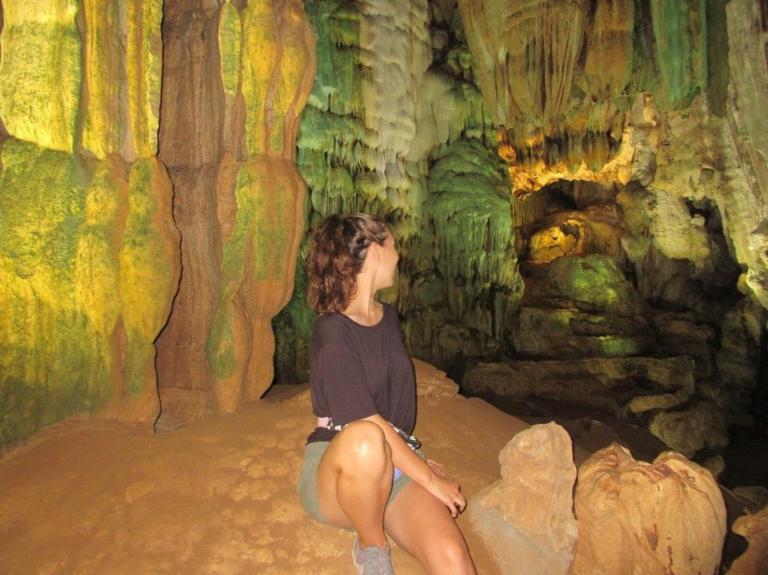
To find out about the background and importance of Bich Dong Pagoda, think about employing a local guide. To maximize your trip, pair your visit with a boat ride across Tam Coc or a climb up Hang Mua Peak. At the place, always keep quiet and honor regional customs.
Combining his historical grandeur with natural beauty, Bich Dong Pagoda presents a really unique experience. We appreciate you following along; maybe, you will visit this amazing destination not too far off.
Related Posts:








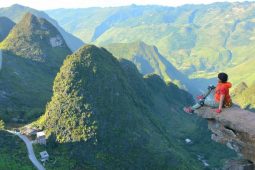
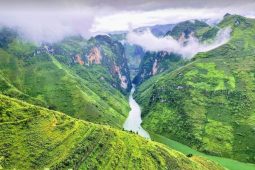
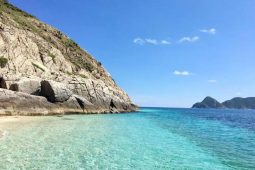
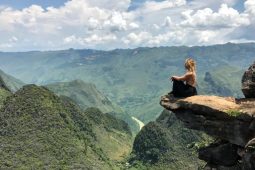
Be the first to comment!